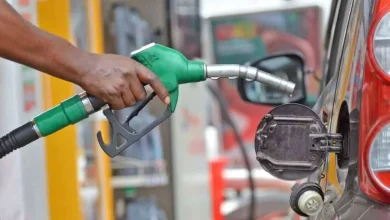Fuel monitoring system saves 225.6bn/-

DAR ES SALAAM: THE government has saved a total of 225.6bn/- over the past four years by tightening controls on fuel importation and reception through the installation of advanced monitoring systems, including flow metres and Supervisory Control and Data Acquisition (SCADA) technology.
This type of industrial control collects data from sensors and equipment located across a facility or across long distances (pipelines, power grids) and then monitors conditions and processes, controls equipment remotely, alerts operators to issues and logs data for reporting, analysis an compliance.
This cost-saving measure, equivalent to about 56.4bn/- annually, was achieved by curbing fuel losses that previously occurred at the oil jet terminal at Dar es Salaam Port due to inadequate infrastructure and poor oversight.
Executive Director of the Petroleum Bulk Procurement Agency (PBPA), Mr Erasto Simon, revealed the figures yesterday in Dar es Salaam during a media briefing session organised by the Office of the Treasury Registrar (OTR).
The briefing was part of ongoing efforts to highlight key achievements under the administration of the sixthphase government.
Mr Simon explained that the deployment of flowmetres and SCADA systems has significantly improved transparency and accountability in the process of receiving petroleum products at storage terminals.
As a result, losses linked to underreported quantities and fuel theft have been drastically reduced.
“The sixth-phase government has taken a front seat in ensuring a steady, timely and affordable supply of petroleum products in the country,” Mr Simon emphasised.
He added that the volume of fuel imported through the Bulk Procurement System (BPS) increased from an average of 5,805,193 tonnes in 2021 to 6,365,986 tonnes in 2024, an increase of 9.6 per cent.
It is projected that by December 2025, a total of 7,090,165 tonnes will have been imported, representing an 11.4 per cent rise compared to the same period the previous year.
He informed that the number of oil-importing companies participating in the BPS process has more than doubled, from 33 in 2021 to 73 by 2025, marking a 121 per cent increase.
Over the same period, the number of registered suppliers in the BPS framework rose to 24.
In terms of storage infrastructure, investment in fuel depots has also expanded.
ALSO READ: EWURA: Fuel imports up by 10.9pc in 2023/24
The number of fuel storage facilities increased from 22 in 2021 to 24 in 2025, with storage capacity rising from 1,288.101 million litres to 1,721.327 million litres—an increase of 34 per cent.
The majority of this growth is attributed to large-scale expansions in Dar es Salaam.
The government, through coordinated efforts by the Ministry of Energy, Ministry of Finance, the Bank of Tanzania, PBPA, Energy and Water Utilities Regulatory Authority (EWURA) and other key stakeholders, created a conducive environment that enabled oil marketing companies to access foreign exchange from commercial banks.
This ensured timely payments for all petroleum imports under the BPS.
To further ease the procurement process, the government revised certain contract clauses, allowing the use of alternative foreign currencies to pay for fuel destined for domestic consumption.
In addition, Mr Simon noted that the PBPA, in collaboration with relevant institutions, has reviewed various operational documents governing the BPS framework to strengthen oversight of the downstream petroleum sector.
Regarding tendering, the number of oil delivery tenders advertised and opened increased from an average of 109 in 2021 to 118 by December 2025—an 8 per cent rise.
Contract implementation has also improved, with a total of 589 procurement contracts successfully executed over the four-year period.
These improvements have not only enhanced operational efficiency and market participation but also bolstered national energy security.
Mr Simon affirmed that the government remains committed to ensuring the availability of fuel across the country at affordable prices while continuing to enhance transparency and accountability in the oil importation process.





